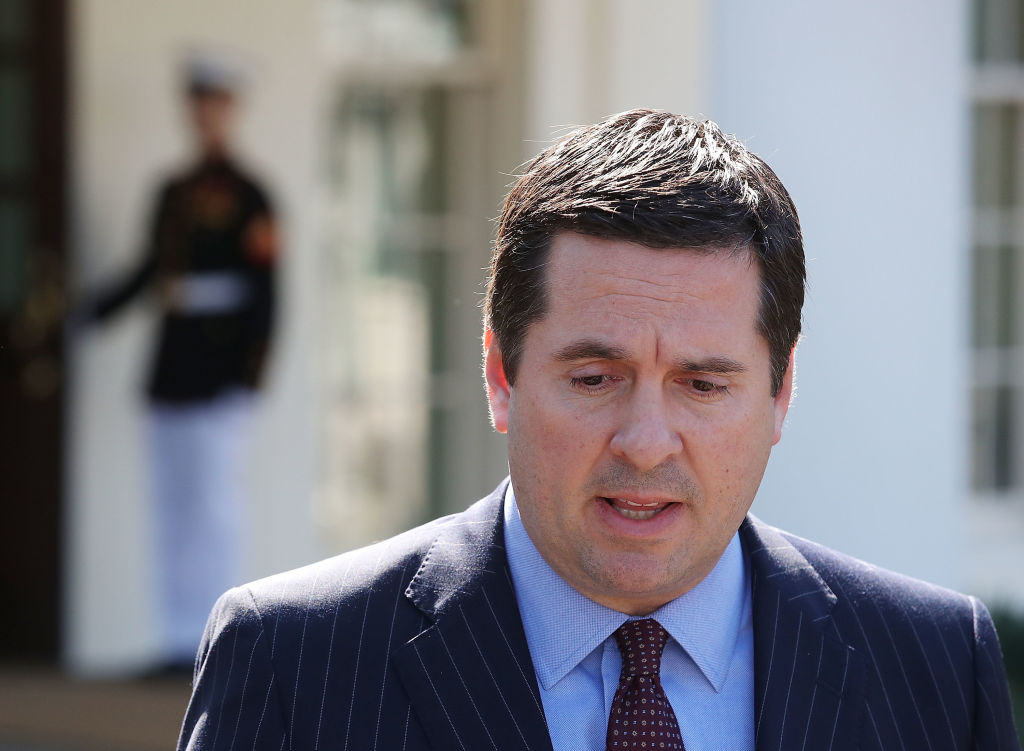Devin Nunes burned columnist Eli Lake on his Trump surveillance sources. Lake just fired back


A free daily email with the biggest news stories of the day – and the best features from TheWeek.com
You are now subscribed
Your newsletter sign-up was successful
When The New York Times reported Thursday that two White House officials had shown House Intelligence Committee Chairman Devin Nunes (R-Calif.) the classified reports he cited when publicly alleging that President Trump's transition team communications had been incidentally collected during foreign surveillance, Bloomberg columnist Eli Lake took special note. Earlier in the week, Lake said, Nunes had "told me that his source for that information was an intelligence official, not a White House staffer. It turns out, he misled me."
Nunes was reportedly fed the classified intelligence by two Trump political appointees: National Security Council senior intelligence director Ezra Cohen-Watnick, whom Trump stopped National Security Adviser H.R. McMaster from firing, and White House national security lawyer Michael Ellis, who used to work for Nunes in the House. This revelation "is a body blow for Nunes, who presented his findings last week as if they were surprising to the White House," Lake writes. "It strains credulity to think that Trump would need Nunes to tell him about intelligence reports discovered by people who work in the White House."
But the real "tragedy" here, Lake says, is that "incidental collection" of U.S. citizens' communications is a real concern and has been since Edward Snowden's leaked NSA documents were revealed. Congress shouldn't vote to reauthorize the surveillance laws in the fall, he argues, but "sadly, the merits of this case are undermined by how the White House and Nunes have made it."
The Week
Escape your echo chamber. Get the facts behind the news, plus analysis from multiple perspectives.

Sign up for The Week's Free Newsletters
From our morning news briefing to a weekly Good News Newsletter, get the best of The Week delivered directly to your inbox.
From our morning news briefing to a weekly Good News Newsletter, get the best of The Week delivered directly to your inbox.
Barton Gellman, a Pulitzer Prize–winning reporter who helped reveal the Snowden leaks, disagrees with Lake about the real story. "This is far more than a story of intelligence manipulation for political gain," he writes at The Century Foundation. Cohen-Watnick and Ellis almost certainly showed Nunes classified information he wasn't even supposed to see, suggesting all three "engaged in precisely the behavior that the president describes as the true national security threat posed by the Russia debate." And from all available evidence, they — not intelligence agencies — requested that the names in the top secret intelligence be "unmasked," he said.
The biggest, most serious question, Gellman says, is this: "Why would a White House lawyer and the top White House intelligence adviser be requesting copies of these surveillance reports in the first place? Why would they go on to ask that the names be unmasked? ... Were the president's men using the surveillance assets of the U.S. government to track the FBI investigation from the outside?" You can read Gellman's full argument at The Century Foundation.
A free daily email with the biggest news stories of the day – and the best features from TheWeek.com
Peter has worked as a news and culture writer and editor at The Week since the site's launch in 2008. He covers politics, world affairs, religion and cultural currents. His journalism career began as a copy editor at a financial newswire and has included editorial positions at The New York Times Magazine, Facts on File, and Oregon State University.
-
 Properties of the week: pretty thatched cottages
Properties of the week: pretty thatched cottagesThe Week Recommends Featuring homes in West Sussex, Dorset and Suffolk
-
 The week’s best photos
The week’s best photosIn Pictures An explosive meal, a carnival of joy, and more
-
 The ‘ravenous’ demand for Cornish minerals
The ‘ravenous’ demand for Cornish mineralsUnder the Radar Growing need for critical minerals to power tech has intensified ‘appetite’ for lithium, which could be a ‘huge boon’ for local economy
-
 NIH director Bhattacharya tapped as acting CDC head
NIH director Bhattacharya tapped as acting CDC headSpeed Read Jay Bhattacharya, a critic of the CDC’s Covid-19 response, will now lead the Centers for Disease Control and Prevention
-
 Witkoff and Kushner tackle Ukraine, Iran in Geneva
Witkoff and Kushner tackle Ukraine, Iran in GenevaSpeed Read Steve Witkoff and Jared Kushner held negotiations aimed at securing a nuclear deal with Iran and an end to Russia’s war in Ukraine
-
 Pentagon spokesperson forced out as DHS’s resigns
Pentagon spokesperson forced out as DHS’s resignsSpeed Read Senior military adviser Col. David Butler was fired by Pete Hegseth and Homeland Security spokesperson Tricia McLaughlin is resigning
-
 Judge orders Washington slavery exhibit restored
Judge orders Washington slavery exhibit restoredSpeed Read The Trump administration took down displays about slavery at the President’s House Site in Philadelphia
-
 Hyatt chair joins growing list of Epstein files losers
Hyatt chair joins growing list of Epstein files losersSpeed Read Thomas Pritzker stepped down as executive chair of the Hyatt Hotels Corporation over his ties with Jeffrey Epstein and Ghislaine Maxwell
-
 Judge blocks Hegseth from punishing Kelly over video
Judge blocks Hegseth from punishing Kelly over videoSpeed Read Defense Secretary Pete Hegseth pushed for the senator to be demoted over a video in which he reminds military officials they should refuse illegal orders
-
 Trump’s EPA kills legal basis for federal climate policy
Trump’s EPA kills legal basis for federal climate policySpeed Read The government’s authority to regulate several planet-warming pollutants has been repealed
-
 House votes to end Trump’s Canada tariffs
House votes to end Trump’s Canada tariffsSpeed Read Six Republicans joined with Democrats to repeal the president’s tariffs
